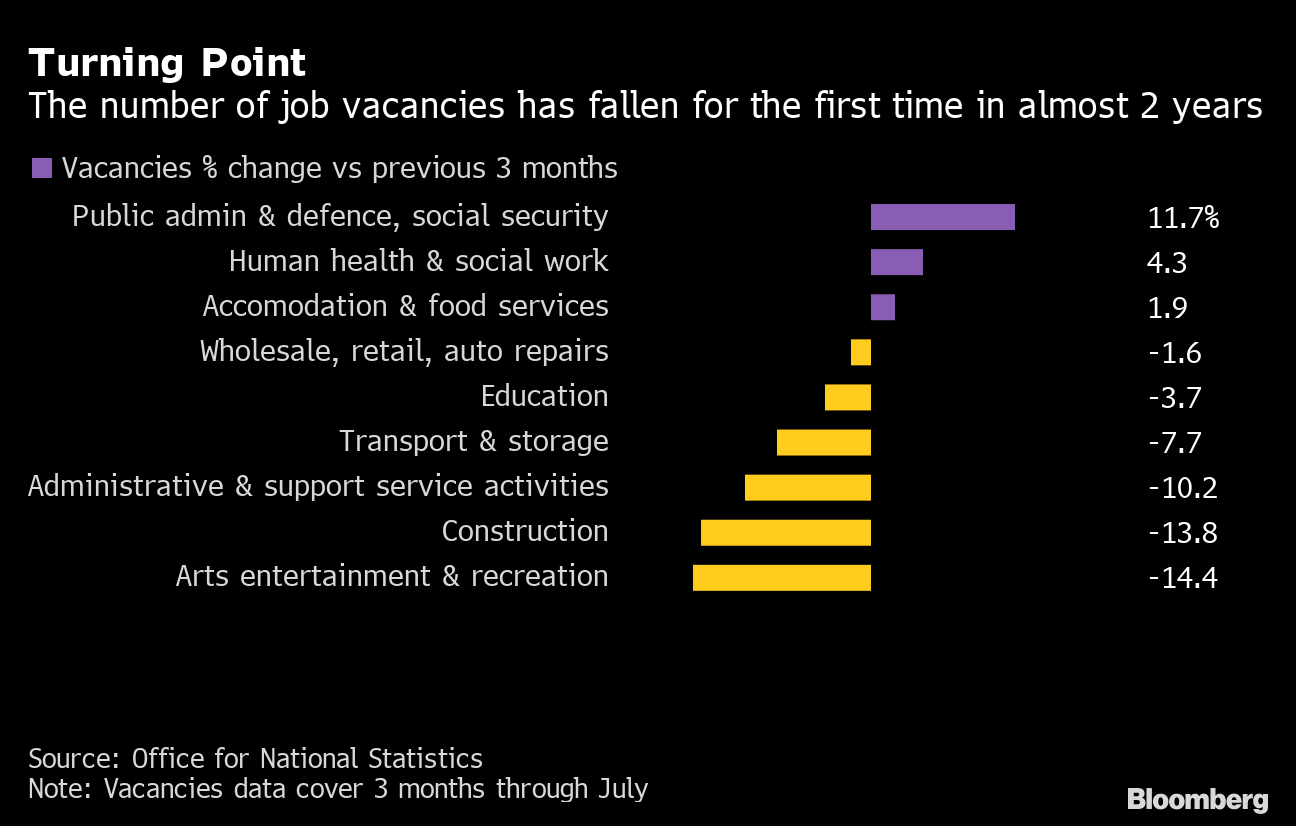Wages adjusted for inflation decline at fastest rate in 20 years, while job vacancies fall for first time in two years in a sign that hiring demand is slowing
Some economists say that the chances of another half-point interest rate hike from the Bank of England in September have gone up following the jump in nominal wage growth, i.e. stripping out the effect of inflation.
Thomas Pugh, economist at audit, tax and consulting firm RSM UK, said:
The leap in regular pay growth to 4.7% in June, which is miles above the 3%-3.5% that’s consistent with the 2% inflation target, significantly raises the chances that the Monetary Policy Committee (MPC) will go for a second 50 basis point rise in interest rates in September.
Admittedly, total wage growth fell from 6.4% year-on-year in the three months to May to 5.1% y/y in June as bonus payments growth dropped to 10.4%. But bonus payments have been volatile lately and the MPC prefers to look at underlying pay growth, which rose strongly. Indeed, pay growth rose rapidly in every industry except for the public sector.
The number of job vacancies dropped by 19,800 in July, the first quarterly fall since June to August 2020. Indeed, much softer economic growth in the second half of the year, due to the cost-of-living crisis, will dampen demand for labour and ease some of the tightness in the labour market. However, we think the smaller pool of available workers will keep the labour market tight for at least the next couple of years.
The tightness in the labour market was reflected in strong nominal pay growth. However, real total pay growth, which takes inflation into account, fell by 2.5%, suggesting that the cost-of-living crisis took a bigger toll in June. Real wages are likely to fall by around 3% in 2022, which would be the deepest squeeze on spending power on record.
Ahead of next week’s energy price cap announcement, there is more bad news for workers as real wages fell by a record 3% on the year. With inflation at 9.4%, and the Bank of England predicting it will peak at 13% in early 2024, people across the UK are facing more tough decisions as their regular pay fails to keep pace with rising prices.
The six million workers in severely insecure jobs will be hardest hit and are already running out of options. Many have already tried to find more hours work and cutback spending but continue to face great uncertainty.
Continue reading…


